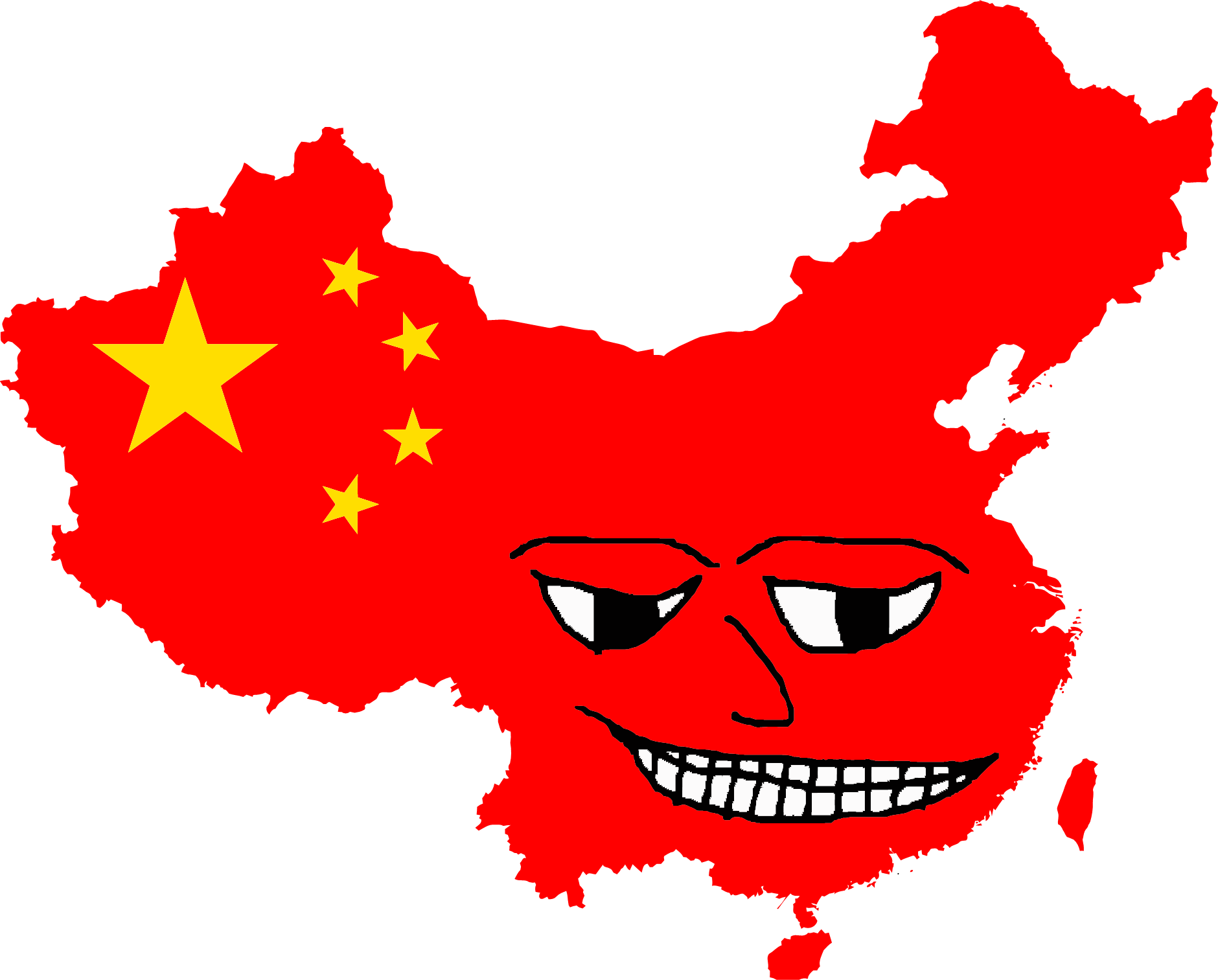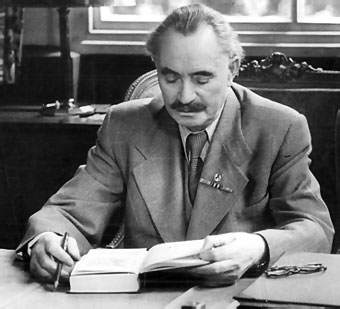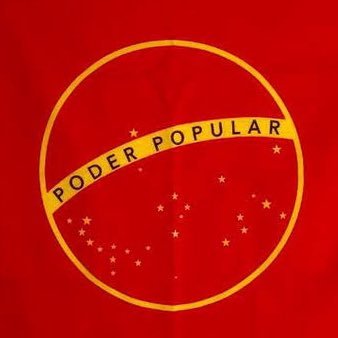They think Deng restored capitalism and installed a bourgeoise dictatorship. The problem with this view is it only works when you haven’t read any Chinese socialism and only listen to Western armchair Marxists.
Honestly, it only works if one never studied the basics. One has to maliciously ignore or misinterprete Lenin and Engels to conclude China being capitalist.
It also only works when you haven’t seen how a restoration of capitalism in a socialist country actually looks like.
What about 3rd-world Marxists that have come to similar conclusions like the CPP-NPA-NDF
It’s a fundamental misunderstanding of what it means to refer to something as communist. China isn’t communist because it’s “achieved communism,” it is, and has always been, communist because “achieving communism” is the nominal end goal of the ruling party’s ideology. The USSR was communist. Cuba is communist. The DPRK is communist. Like China, none of these states “achieved communism.”
China liberalized in order to use western economics to better industrialize. Dumbfuck westerners and radlibs take this as them lying about being communist or whatever. But, because they’re communist, and with four decades of GDP growth to support future endeavors, they are now trending back in the other direction. China haters are in for some massive cope

they are now trending back in the other direction.
There are certainly people who call themselves communist that miss this point too!
S4A sadens me, he does lots of great work turning communist texts into audiobooks, but then latches onto one aspect of china that blinds him to the truth. China used capitalism to beat the west at their own game, and now they get to change the rules.
they get to change the rules
And they’re able to specifically because they’re communist and have kept the bourgeoisie subordinate to the state!
Without dialectics its really damn hard to imagine how change actually happens. As far as zero-theory no-books gang is concerned, either China is communist or they’re not. There’s no understanding of iterative transformations and how quantitative change becomes qualitative change. They see that China has private property and profit and wage labor etc. and conclude they’re not communist. Vulgar economism or a sort of faux-Marxist dogmatism. The fact that politics are in command and the market is subjugated to the Party’s agenda is lost on them.
That was me before COVID, and it was China being the only country in the world to take COVID seriously (other than New Zealand, the bunker nation of billionaires) that forced me to actually learn. That’s what it looks like when politics are in command. Even after they’ve left zero COVID policies behind (under immense pressure from the entire rest of the world) they’ve had only 60,000 deaths. Compared to more than a million in my country, even though our population density is vastly lower, it’s hard to still think of them as a revisionist degerated worker’s state.
All socialist states took it seriously, not just China. The DPRK outright closed its borders. Vietnam mobilized the entire nation to deal with lockdowns and development of test kits. Cuba was among the first to finish developping a vaccine.
New Zealand get praised for its low causalties, but if you look at its per capita numbers, it comes away worse than any socialist state. None of them as isolated as NZ, or as rich.
You’re right that Cuba and Vietnam also responded seriously, but what I mean is China was the only one that had a zero COVID policy. As a result, their per capita numbers were the best in the world (among countries that have adequate ability to test, anyway). Being a country of over a billion people gives their tremendous success a lot more weight. No disrespect meant to Cuba, Vietnam, or DPRK.
DPRK is too unique to really compare to other countries anyway. They could isolate as much as New Zealand, no one else could reasonably lock down like that because that’s a direct product of their nation being under siege for essentially its entire existence.
If New Zealand is the bunker nation of billionaires, DPRK is the people’s bunker nation.
it shakes my faith in AES governments that all these places seem to have given up on mask mandates, testing, and air quality 😢
They’re under immense pressure to stop masking and testing, both externally from countries demanding they open up their economies and internally from citizens who have been tricked by the rest of the world into thinking COVID isn’t dangerous after vaccination.
I’m sympathetic towards the inability to continue, it just shows that they aren’t yet strong enough to totally defy the market forever.
On the bright side, at least when bird flu spreads from milk drinkers in the US they’ll be ready to go right back into lockdown.
thanks for the constructive answer. I’m less confused about lockdowns than I am about mask mandates and air quality rules, which seem like they wouldn’t be as affected by at least the pressure from other countries.
Capital opposes mask mandates because they discourage certain types of consumption and can act as a constant reminder of the pandemic, which further suppresses consumption as people choose to stay home. Any and all obstacles to consumption are anathema and China couldn’t risk capital strike. Further, internal discontent about mask mandates are also a huge concern. The majority of people do not care about getting sick or getting others sick, unfortunately, and asking them to mask forever is not really possible.
Air quality, on the other hand, mostly only improved during zero COVID because of reduced traffic and reduced industrial demands for power. Unfortunately China can’t exactly keep what were essentially degrowth policies in place to continue to increase air quality without harming the country itself. They need to be as productive as possible now more than ever as the US begins ratcheting up the trade war and pushing us towards WW3. Their plan seems to be electrification and green energy, though unlike the West seem to actually be doing it.
Not like it’s going to matter once bird flu hits :V
AES governments are actually democracies, for better and for worse. See, the USSR liberalizing their economy in the late Soviet period, largely due to public pressure.
Vaccines have been produced and improved. People could not take the lockdowns anymore. So things returned to normal.
deleted by creator
Yeah, buisness as usual. As I wrote “things returned to normal”.
“normal” except a new, relatively easily preventable longterm immune disorder is going around, causing different kinds of organ failure, reduced mental capacity, chronic fatigue. even the mostly useless WHO still classifies it as a pandemic, plutocrats still mask and test - governments that have given up caring about it are not doing right by the working class.
deleted by creator
deleted by creator
Excess death stats, right?
What you have to remember is that all cause mortality from air borne respiratory disease went down because of those zero COVID policies. Masking and staying home and aggressive testing prevents everything else from killing people too, many of those excess deaths can be attributed to other less deadly infections that had also been suppressed by China efforts. Immunity debt might play a role as well, as people who have not been exposed to years of new flu variants suddenly get slammed. I’m not willing to say that all excess mortality is from COVID.
Though it could very well be higher than what is reported, same as it is in every country. No one wants to admit COVID isn’t over.
deleted by creator
60,000 just isn’t a realistic number of deaths on that scale.
Maybe, but a number several orders of magnitude larger is also hard to believe. The true number could be higher, just like it probably is in every country, but a cover up of that scale would be hard to achieve. At most I can believe half a million i.e. about one order of magnitude.
deleted by creator
Official government stats aren’t vibes.
Also, no one counting is a coverup, same as it is in the US and every other country that isn’t properly testing to keep their numbers down.
The scale of this coverup is just so much larger than everyone else in the world, which is what makes it hard to believe.
deleted by creator
Communism is when poor, capitalism is when rich. Basically that.
Communism is when red guards, lots of red flags and poor. No red guards, less red flags and not poor is obviously revisionism!11
[What makes a country “socialist”?]
A society where public ownership of the means of production, a state controlled by a politically organized proletariat, and production for societal use rather than for profit is the principal aspect (main body) of the economy.
Key term here is principal aspect. There is a weird phenomenon from both anti-communists as well as a lot of ultraleft and leftcom communists themselves of applying a “one drop rule” to socialism, where socialism is only socialism if it’s absolutely pure without a single internal contradiction. But no society in the history of humankind has been pure, they all contain internal contradictions and internal contradictions are necessary for one form of society to develop into the next.
If you applied that same logic to capitalism, then if there was any economic planning or public ownership, then capitalism would cease to be “true capitalism” and become “actually socialism”, which is an argument a lot of right-wing libertarians unironically make. The whole “not true capitalism” and “not true socialism” arguments are two sides of the same coin, that is, people weirdly applying an absolute purity standard to a particular economic system which is fundamentally impossible to exist in reality, so they then can declare their preferred system “has never truly been tried”. But it will never be tried ever because it’s an idealized form which cannot exist in concrete reality, actually-existing capitalism and socialism will always have internal contradictions within itself.
If no idealized form exists and all things contain internal contradictions within themselves, then the only way to define them in a consistent way is not to define them in terms of perfectly and purely matching up to that idealized form, but that description merely becoming the principal aspect in a society filled with other forms and internal contradictions within itself.
A capitalist society introducing some economic planning and public ownership doesn’t make it socialist because the principal aspect is still bourgeois rule and production for profit. This would mean the state and institutions carrying out the economic planning would be most influenced by the bourgeoisie and not by the working class, i.e. they would still behave somewhat privately, the “public ownership” would really be bourgeois ownership and the economic planning would be for the benefit of the bourgeoisie first and foremost.
A similar story in a socialist society with markets and private ownership. If you have a society dominated by public ownership and someone decides to open a shop, where do they get the land, the raw materials, permission for that shop, etc? If they get everything from the public sector, then they exist purely by the explicit approval by the public sector, they don’t have real autonomy. The business may be internally run privately but would be forced to fit into the public plan due to everything around them demanding it for their survival.
Whatever is the dominant aspect of society will shape the subordinated forms. You have to understand societies as all containing internal contradictions and seeking for what is the dominant form in that society that shapes subordinated forms, rather than through an abstract and impossible to realize idealized version of “true socialism”.
Countries like Norway may have things that seemingly contradict capitalism like large social safety nets for workers funded by large amounts of public ownership, but these came as concessions due to the proximity of Nordic countries to the USSR which pressured the bourgeoisie to make concessions with the working class. However, the working class and public ownership and economic planning never became the principal aspect of Norway. The bourgeoisie still remains in control, arguably with a weaker position, but they are still by principal aspect, and in many Nordic countries ever since the dissolution of the USSR, the bourgeoisie has been using that dominant position to roll back concessions.
The argument for China being socialist is not that China has fully achieved some pure, idealized form of socialism, but that China is a DOTP where public ownership alongside the CPC’s Five-Year plans remain the principal aspect of the economy and other economic organization is a subordinated form.
Deng Xiaoping Theory is not a rejection of the economic system the Soviets were trying to build but a criticism of the Soviet understanding socialist development. After the Soviets deemed they had sufficient productive forces to transition into socialism, they attempted to transition into a nearly pure socialist society within a very short amount of time, and then declared socialist construction was completed and the next step was to transition towards communism.
Deng Xiaoping Theory instead argues that socialism itself has to be broken up into development stages a bit like how capitalism also has a “lower” and “higher” phase, so does socialism. The initial stage is to the “primary stage” of underdeveloped socialism, and then the main goal of the communist party is to build towards the developed stage of socialism. The CPC disagreed that the Soviets had actually completed their socialist construction and trying to then build towards communism was rushing things far faster than what the level of productive forces of the country could sustain and inevitably would lead to such great internal contradictions in the economic system to halt economic development.
The argument was not a rejection of the Marxist or Marxist-Leninist understanding of what socialism is, but a disagreement over the development stages, viewing socialism’s development as much more gradual and a country may remain in the primary stage like China is currently in for a long, long time, Deng Xiaoping speculated even 100 years.
I recall reading somethings from Mao where he criticized the Marxian understanding of communism, but not from the basis of it being wrong, but it being speculative. He made the argument that Marx’s detailed analysis of capitalism was only possible because Marx lived in a capitalist society and could see and research its development in real time, therefore Mao was skeptical the current understanding of communism would remain forever, because when you actually try to construct it you would inevitably learn far more than you could speculate about in the future, have a much more detailed understanding of what it is in concrete reality and what its development stages look like.
In a sense, that’s the same position the modern CPC takes towards socialism, that the Soviets and Mao rushed into socialism due to geopolitical circumstances and did not have time to actually fully grasp what socialist development would look like in practice, and Deng Xiaoping Theory introduces the concept of the primary stage of socialism based on their experience actually trying to implement it under Mao.
Despite common misconception, the CPC’s position is indeed that China is currently socialist, not “will be socialist in 2049” or whatever. The argument is that China is in the primary stage of socialism, a system where socialist aspects of the political and economic system have become the main body but in a very underdeveloped form.
by aimixin
And we could just put this
https://en.prolewiki.org/wiki/Essay:Why_China_is_not_Capitalist (Gets into the nitty-gritty of state ownership, co-ops, and planning)
 good post
good post
it’s more fun to have your own, very specialized definition and conception of communism and socialism and repeat them for a few decades than to read boring books for a few weeks and have your misconceptions cleared up.
“my ignorance is as good as your knowledge”, but not in a bad stupid American way, but in a good virteous down-to-earth proletarian who doesn’t need the work of fancy shmancy professors way
deleted by creator
deleted by creator
If your only definition of communism is that the workers own the means of production then China isn’t a communist country. But there are other definitions
deleted by creator
Like most things liberals say, it’s incoherent nonsense that falls apart under very basic examination, and when you point that out they just get mad at you and refuse to answer.
They hate China because they are jingos and they hate capitalism because it’s in vogue so since those two things are bouncing around in their heads, they connect them.
deleted by creator
China is the factory of the world and thus a major part of global capitalism. The more reasonable ultras (ie those who don’t say socialism has never existed) point to this without realizing it puts them in a perfect position to end capitalism and lead socialism. They think deng was a revisionist who opened special economic zones to reinstate capitalism.
deleted by creator














